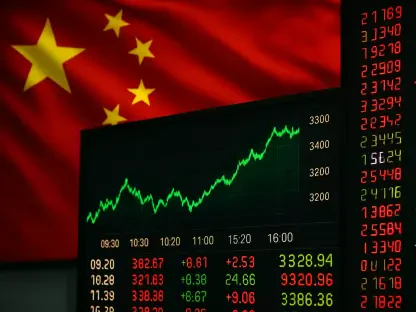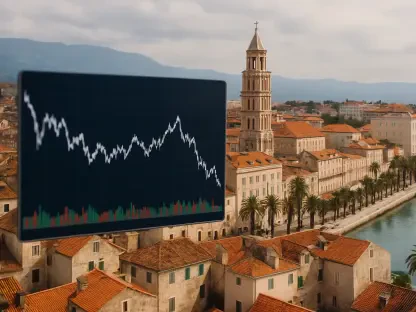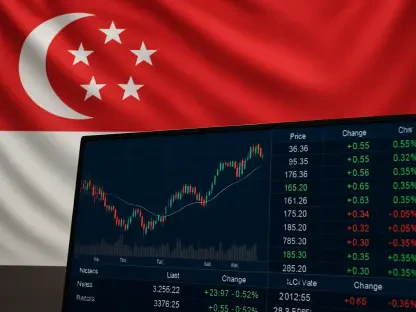Introductions
Fears of an economic downturn, coupled with the increasing tension surrounding President Trump’s trade policies, have led to significant volatility in the U.S. stock market. Investors are becoming increasingly skittish as the imposition of broad tariffs threatens not only domestic economic stability but also the global financial landscape. The following analysis dives into the current turmoil affecting the markets, the historical context behind these trade policies, and potential future outcomes.
Trade War and Market Downturn Origins
In recent months, the volatility observed in the U.S. stock market has been primarily driven by the escalating tariff measures imposed under President Trump’s administration. The shift towards protectionism, characterized by tariffs initially targeting steel and aluminum, has expanded significantly, influencing trade relationships with major international economies such as China, the EU, and Japan. These protectionist measures significantly contrast the principles of free-market capitalism that have dominated global trade for decades.
This backdrop of disrupted supply chains and deteriorating trade relationships is fundamental to understanding the extent of market apprehension and volatility.
Stock Market Reactions: Analysis
Indices Reflect Investor Anxiety
One of the most immediate consequences of these trade policies is the marked decline in major stock indices. The S&P 500, Dow Jones Industrial Average, and Nasdaq 100 have experienced some of the most significant declines in recent history, with the S&P 500 dropping by 4.42% to its lowest point in over six months. These indices, often viewed as indicators of market health, reflect widespread investor anxiety amidst the political and economic uncertainty.
Technology stocks, in particular, have borne the brunt of this downturn due to their intricate global supply chains. Companies like Apple, Amazon, and Nvidia have faced substantial reductions in their stock prices, raising concerns over potential disruptions and heightened production costs.
Sectoral Impact
Different sectors have experienced varying impacts due to the tariff announcements. The technology sector has encountered significant losses as export restrictions and increased production costs create a challenging operating environment. Similarly, the retail and consumer goods industries are grappling with their heavy reliance on imported goods, exacerbating vulnerabilities amid the new trade policies.
Conversely, the food and beverage industry has seen a surge, as defensive stocks provide a safer haven for investors during turbulent market conditions. This shift underscores the changing market dynamics and the varying levels of risk exposure across different industries.
Broader Economic Complexities
Economic repercussions of the trade war extend beyond stock market dips. Regional disparities are notable as areas with economies reliant on agriculture or manufacturing are likely to face more substantial impacts. Potential retaliatory actions from affected countries could further disrupt not only import prices but also export opportunities, job markets, and overall economic stability.
Experts caution against oversimplified views that tariffs only influence import prices, emphasizing the widespread effects on the interconnected global economy.
Emerging Trends and Predictions
Looking ahead, several emerging trends are likely to shape the economic landscape. Businesses may intensify their diversification efforts to reduce dependence on specific geographic regions, potentially accelerating the adoption of automation and AI technologies to offset rising costs.
Furthermore, future regulatory changes and evolving trade agreements could dramatically transform the economic environment, offering both challenges and opportunities for businesses willing to adapt.
Industry pundits suggest that while the short-term outlook remains bleak, companies capable of navigating the new trade realities could find pathways to growth and resilience.
Strategic Recommendations
For businesses and investors navigating these tumultuous times, implementing strategic measures is crucial. Diversifying supply chains, investing in technological advancements, and monitoring regulatory changes are essential steps. Companies must consider flexible strategies that allow them to pivot in response to emerging information.
Consumers and professionals also need to remain vigilant and prepare for potential economic shifts that could influence purchasing power, job markets, and investment opportunities. Adopting a more cautious approach to spending and investing can mitigate risks in this uncertain period.
Conclusion: Long-Term Implications
The repercussions of President Trump’s trade policies had a profound impact not only on stock markets but the broader economic landscape. The global economies had to adapt to new trade relationships, signaling a significant shift in economic paradigms.
Understanding these complexities and preparing for change will have been crucial for all stakeholders. Those who stayed informed and flexible navigated the challenges more effectively, paving the way for future economic stability and growth.









